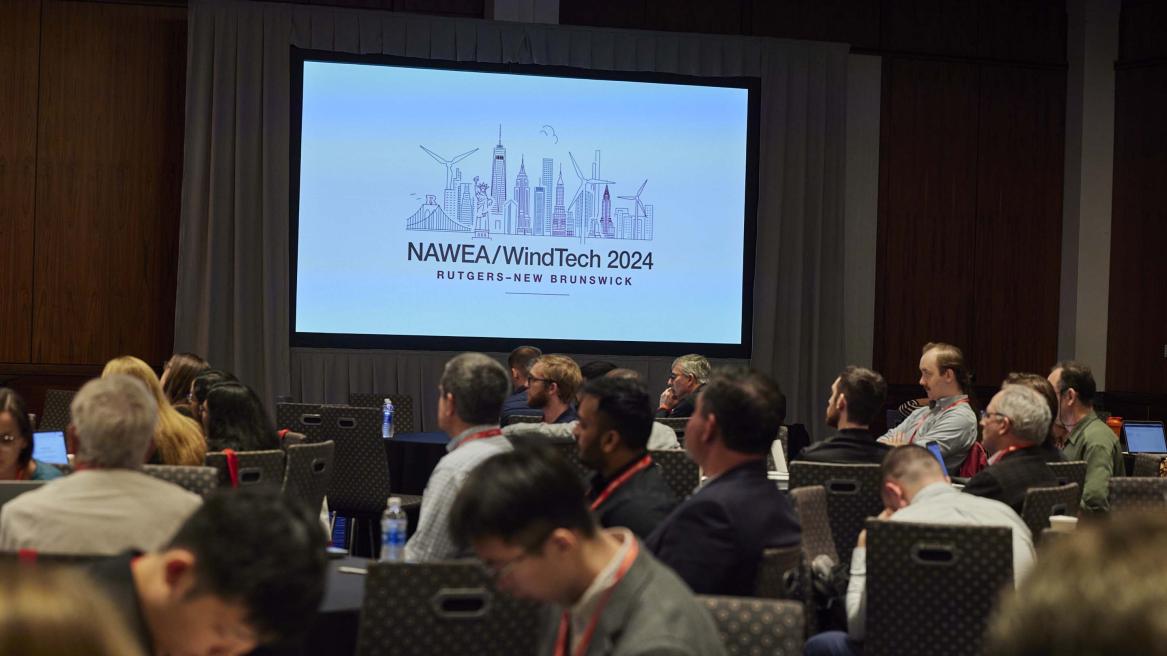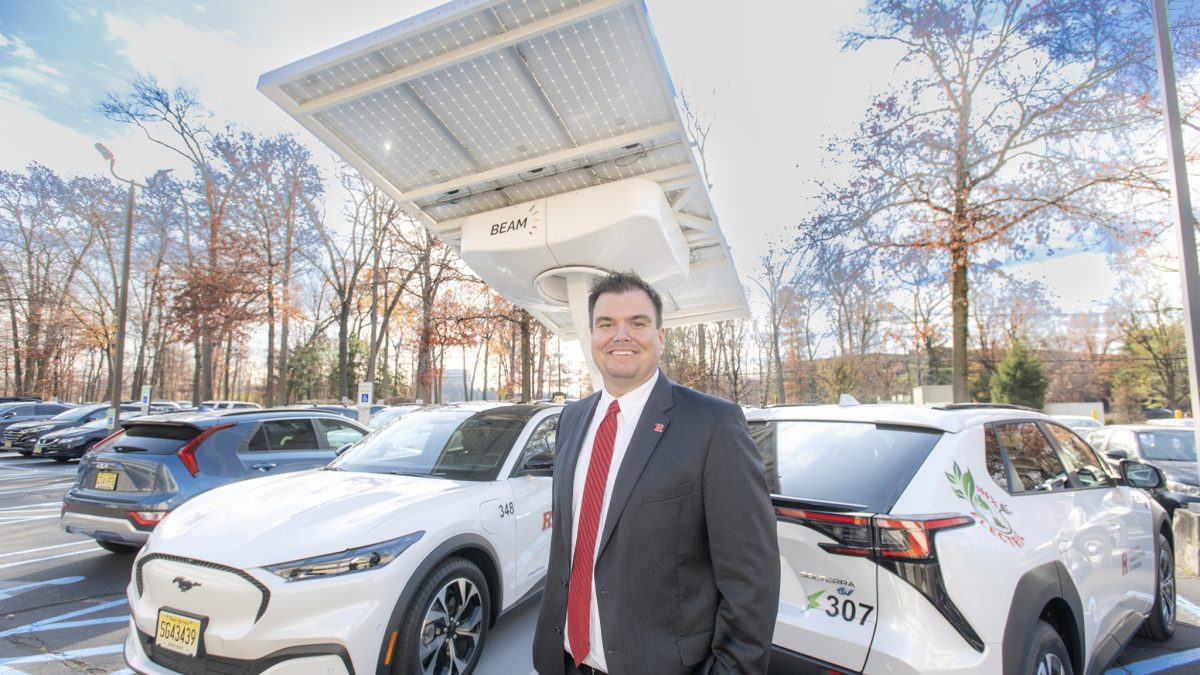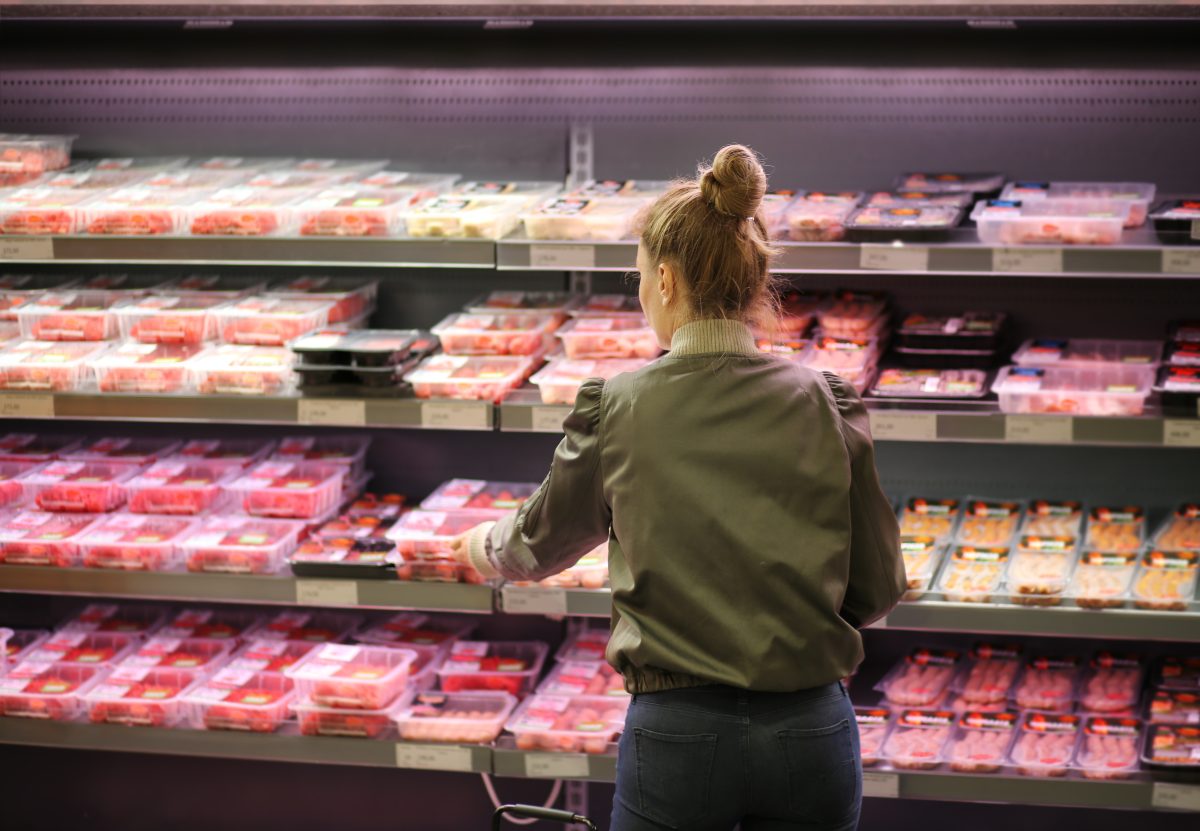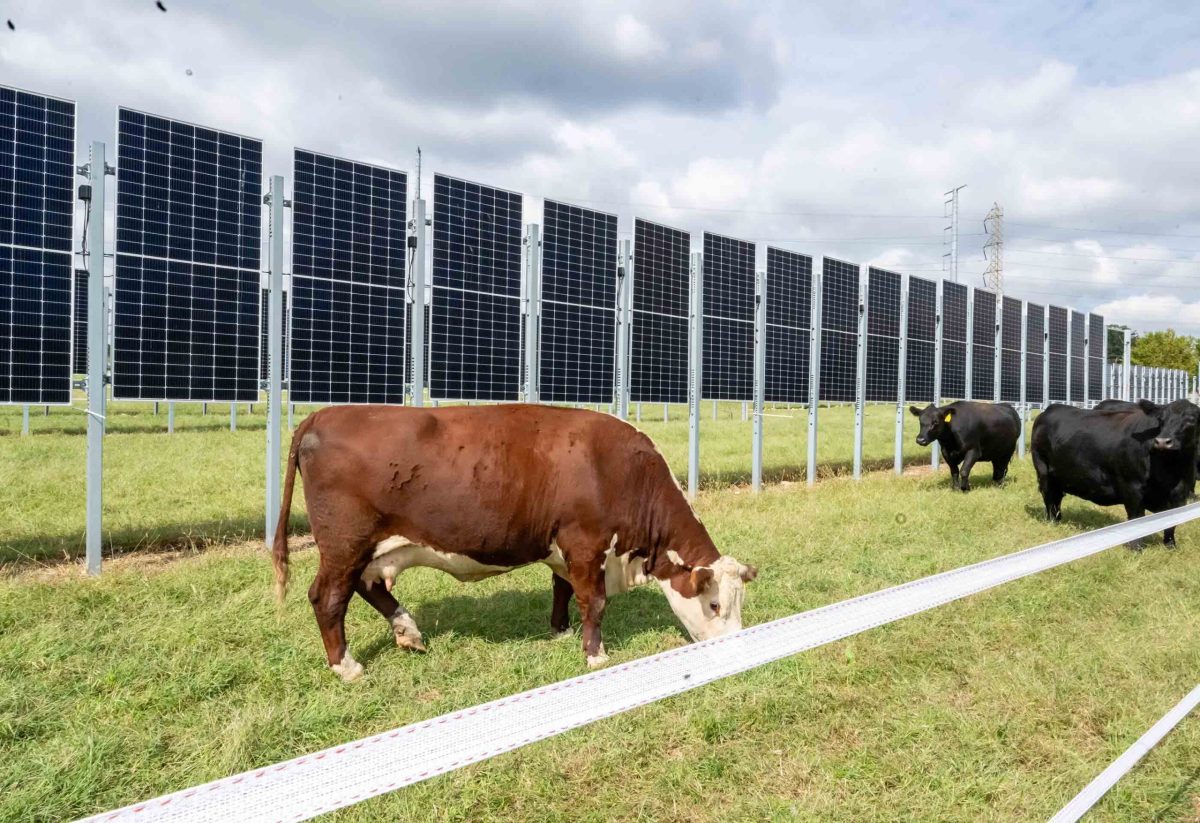BY Mitaali Taskar
Rutgers Science Webinar Plunges Into Ocean Exploration with More Than 265 Students.
Michael Crowley, technical director of Rutgers’ Center for Ocean Observing Leadership, answers questions on ocean-related challenges, using real-time data the DMCS monitors 24/7 from the COOL classroom.
Rutgers University – New Jersey State Policy Lab (NJSPL) Report on LMI Community Solar Program in NJ
By Sania Murtuza, Tai Vu, Biplav Pokhrel, and Yao Sun
Report Release: Examining Low- and Moderate-Income Community Solar Program and Energy Justice in New Jersey: An AI-Based Crowdsourcing Study
Rutgers engineer has been named a 2024 National Academy of Inventors Fellow
By Roya Rafei
Thomas Nosker, Inventor of Recycled Plastic Lumber, Receives Highest Honor for His Work
Wind Energy Conference Highlights Rutgers’ Role as Hub for Innovation and Collaboration
By Susan Cohen
Rutgers University–New Brunswick hosted the NAWEA/WindTech 2024 Conference, North America’s premier technical event on wind energy, co-organized by the New Jersey Academic Alliance for Offshore Wind.
Rutgers Launches EV Project to Replace Gas-Powered Fleet in Major Sustainability Initiative
By Lisa Intrabartola
William O’Brien, assistant vice president of Institutional Planning and Operation, with two of the 24 new electric vehicles purchased this fall as part of a decade-long plan to phase out all 700 of Rutgers’ gas-powered vehicles. Rutgers also purchased its first two solar-powered Beam ARC charging stations this fall.
Why Health and Price, Not Sustainability, Drive U.S. Meat Consumption Choices
By Michelle Edelstein
Environmental sustainability isn’t a major factor influencing meat consumption decisions for most Americans, despite increasing awareness of the climate impacts of red meat production, according to Rutgers researchers.
Considering Sustainability in the Age of Climate Change
By Caroline Brobeil
Rutgers School of Business–Camden explores how partnerships between companies and communities can help prepare for a changing world
Rutgers Start-up Receives $14.5M Grant from U.S. Department of Energy
Rutgers start-up Queens Carbon will receive $14.5 million in government funding to advance its groundbreaking technology that aims to eliminate carbon emissions from the cement industry.
Cows and Solar Panels? In a New Jersey First, Project Melds Farming With Electricity Generation
By Kitta MacPherson
Federal, state and university officials are inaugurating a research and demonstration project at Rutgers University-New Brunswick with the purpose of advancing a technology that could produce renewable energy while making farms more sustainable.
Combatting Climate Change’s Effects With AI, Nanotechnology and More
Alan Robock, a Distinguished Professor of climate science in the Department of Environmental Sciences at Rutgers, has whittled the essentials of global warming down to 10 words: “It’s real. It’s us. It’s bad. We’re sure. There’s hope.”



















